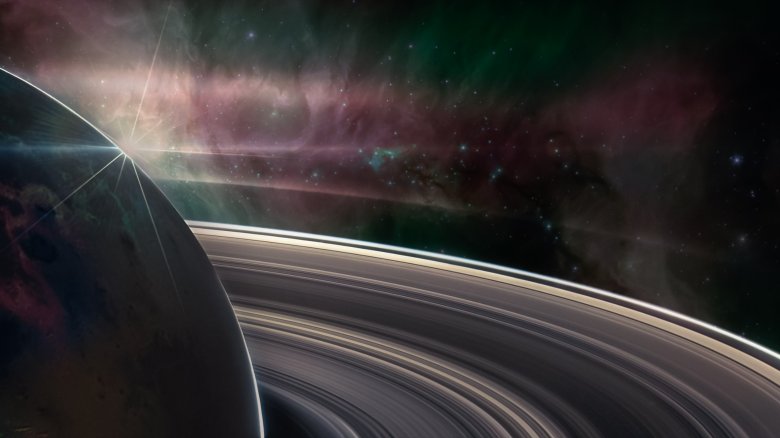Why Is Saturn Losing Its Rings?
If our Solar System's planets were people sitting on a bus, Saturn would be the guy in the back wearing a purple cape, smelling of patchouli and smoking a corn husk pipe. With its distinctive rings and bold striations, Saturn is the eccentric bus-guy of our cosmic neighborhood. Unfortunately, while Patchouli Pete is doing fine, Saturn is slowly losing its ring-bedazzled mojo.
To understand the fate of Saturn's rings, you first need to know what they are. Saturn's rings are made up of dust, rock, and a whole lot of ice. Some of this stuff is minute — little more than space-sand. Some chunks are gigantic, skyscraper-sized blobs of space detritus. All this stuff has accumulated there over millions of years thanks to the oddly OCD habit this universe has developed of causing bodies to be attracted to one another — the phenomenon Newton dubbed "gravity" when an apple (allegedly) hit him on the noggin.
Unfortunately, other famous astronomers must bear witness to an unpleasant cosmic irony. Gravity is the same force that will ultimately cause these rings to disappear. According to an April 2019 study published in astronomy journal Icarus, ice particles from Saturn's rings are slowly being sucked by gravity into a decaying orbit around Saturn, eventually falling to the planet's surface in a shower of "ring rain" (which sounds so much more melancholy than "sun rain"). Moreover, by the universe's standards, this ring death is happening relatively quickly. NASA research suggests that ice is draining ice away from Saturn's rings at the rate of one Olympic-sized swimming pool's worth of "water products" every half hour.
Does this mean we'll see any discernible change in our lifetime? Not so much. According to research cited in Universe Today, Saturn has another 100 million or so years before becoming just another regular Joe planet. There's a lot we still don't know about our own planetary neighborhood, but we do know our Solar System will have its weird guy at the back of the bus for some time yet.
